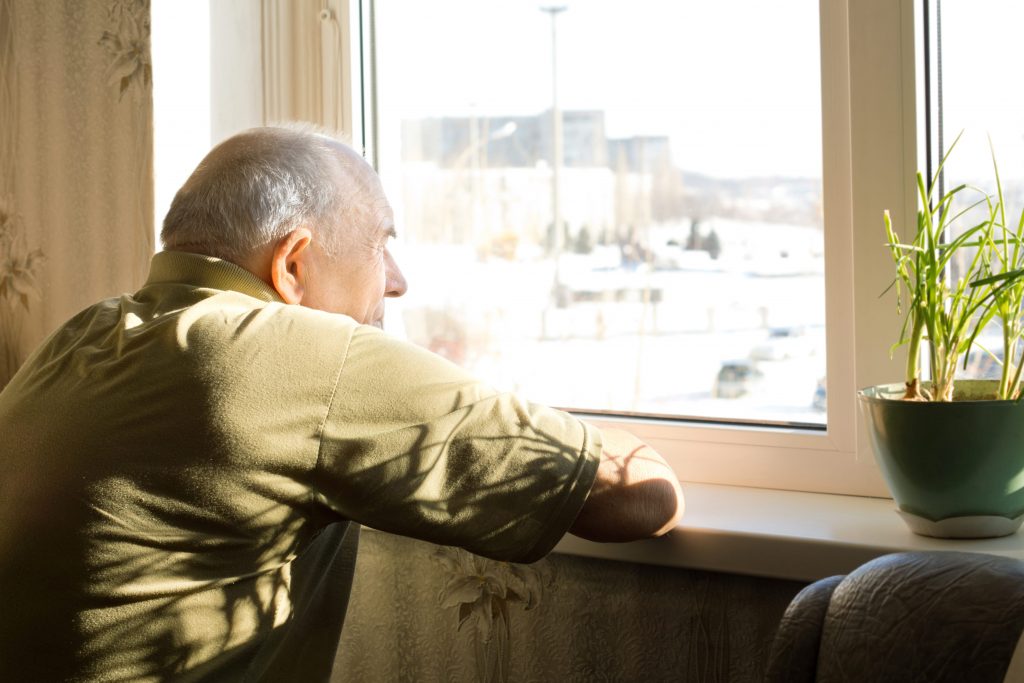When you are young, the idea of growing old and the problems of growing old are often far from one’s thoughts. As one gets older, gradually, the problems of being a “senior citizen” begin to creep up on you: There are more aches and pains; there might be limitations in mobility, there are health concerns, and gradually each of these problems and more come into one’s consciousness. Not only does one have problems with their own health, but there might be a partner with serious health or other problems. The older that one gets, the more aware one becomes of the problems of aging. Some of the most challenging are problems having to do with loneliness and isolation.
Based on research information provided by the U.S. Census Bureau, at the most recent census, it was reported that there are approximately 11 million senior citizens 65 and over living alone. The older they are, the more likely it is that they will end up alone. Many do not have children or have been abandoned by their children, leaving them without a close family support group. While they might have extended family members, they are often not close enough either in distance or in relationship to be much in the way of company for senior citizens.
While there may be a variety of reasons for the senior citizen to be alone, the effects of isolation and loneliness may become significant factors in their lives. There is real social isolation and perceived social isolation, but both can have adverse effects on the quality of life of the individual senior citizen. There are a number of problems associated with isolation and loneliness.
Perhaps one of the most serious problems associated with loneliness and isolation is the fact that these situations increase the risks of mortality for the senior citizen of age 52 and older. One possible reason given for this is the fact that significant others often urge their partner to seek medical attention, but being alone, the senior citizen often ignores what can ultimately become serious health problems. Further, living alone, the senior can fall, have a heart attack, stroke, or other serious health problems that goes without immediate attention, increasing the possibility of death. Therefore, efforts to reduce the actual or perceived social isolation of senior citizens can lead to decreased mortality rates.
Even the perception of loneliness can have adverse effects on the individual’s physical and mental health. If one feels lonely and isolated, the person experiences a disconnection with other people. The feelings of being disconnected and alone, in turn, produces depression which lowers the resistance of the person to both mental and physical problems and disease. Often, the opportunity of just talking to the psychologist, describing one’s emotions and life circumstances can produce a connection that can be very valuable for the senior citizen.
Aside from mental depression and physical problems associated with social isolation, these situations contribute to a deterioration of cognitive functioning. This, in turn, increases the risk of dementia. Because a need for various kinds of social contact is “hard-wired” into the human brain, the lack of social contact can have both adverse physical and neurological effects.
Because loneliness and social isolation has the effect of making one vulnerable to forming friendships and associations with people who may not have the best interests of the senior citizen at heart. The subject of elder abuse has become a matter of increased public attention and concern in recent years, senior abuse can take a number of forms, physical and verbal abuse, financial abuses, and psychological abuse. Because the abuser may be the only social contact which the senior citizen has, he or she may be reluctant to resist the abuse to protect themselves. Often, the abused senior citizen may think that they have no alternatives, and they accept the abuse as part of the cost of having some form of social contact. Sometimes, the abuser may be a family member or someone from outside of the family but who has recognized that there is some advantage in associating with the senior citizen. In whatever situation that applies, the senior citizen may find him or herself in a situation that is careening out of control, but they have no way to control it. In any case, social isolation can make senior citizens vulnerable to various forms of elder abuse.
If you are a senior citizen experiencing problems associated with loneliness and isolation, communication with a psychologist may provide for therapeutic, non-risky social contact. Further, the psychologist can provide input, advice, and assistance i circumstances of mental and physical deterioration, cognitive deterioration, and problems of elder abuse. Contact with a psychologist can open up new opportunities for positive social contact and interaction necessary and beneficial to senior citizens.














